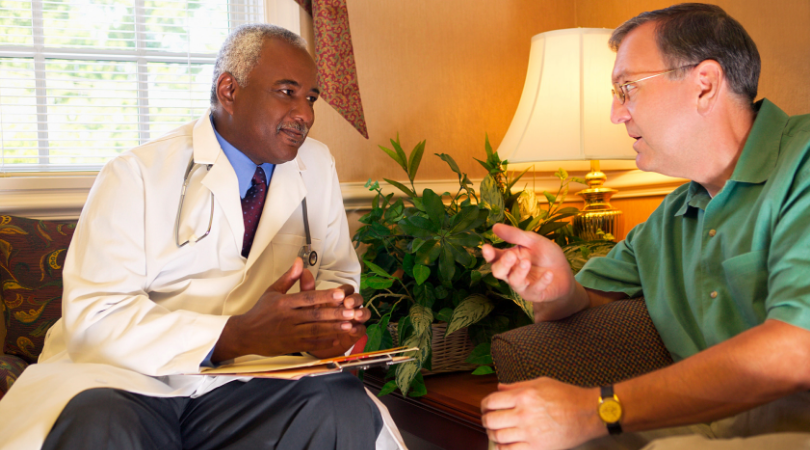Celebrating the Freedom to Make Independent Choices

On Independence Day, our thoughts turn to freedom and the liberties we enjoy as Americans.
But someone facing a terminal illness may feel anything but free. They may fear losing their independence, dignity, and freedom of choice to their illness. Or that their illness has robbed them of the ability to make decisions about their medical care. These are fairly common misconceptions about hospice and palliative care. At Crossroads Hospice & Palliative Care, we know this couldn’t be farther from the truth.
A basic principle of the hospice philosophy of care is that every patient has a right to self-determination in their medical care. Patients get to choose. This right to control treatment based on one’s own preferences is protected by the Federal Patient Self-Determination Act passed by Congress in 1990.
“Hospice exists in the hope and belief that through appropriate care, and the promotion of a caring community sensitive to their needs, that individuals and families may be free to attain a degree of satisfaction in preparation for death,” says the National Hospice and Palliative Care Organization in its Hospice Philosophy Statement.
Reclaiming Power
End-of-life care restores control and empowers patients to choose how they want to live their best lives in the time they have remaining.
“At Crossroads, we see an acceptance of hospice care as a reclamation of power and control. The power to do things on your own terms. The power to take the control of your situation back,” says Crossroads’ CEO Perry Farmer.
In order to make the best care decisions, patients must be fully educated and understand the reality of their condition, and the options that are available. This is the essence of informed consent, and it is the focus of the multidisciplinary hospice team.

Establish Goals of Care
From the very first consult, hospice team members guide conversations with patients and their loved ones to assess their physical, emotional, and spiritual needs and establish goals of care. They ask skilled questions and listen closely to learn what is most important to the individual so they can help guide decisions that will enhance their quality of life.
They might ask, for example, about one’s defining characteristics and life experiences, or hobbies and activities that bring a person joy. They also gently explore sensitive issues, such as a patient’s fears or concerns they have about their illness, or how their death will affect their loved ones.
Crossroads’ philosophy is that an individual is one’s own best expert on oneself and how one wants to live. Patient-directed, holistic end-of-life care is wholly intended to improve quality of life, for as long as life lasts, by involving the patient’s own wishes and goals in decision-making.
Effective end-of-life conversations are empowering for the patient, according to Timothy Ihrig, MD, Crossroads’ Chief Medical Officer. The hospice conversation is not about death; rather, it’s about how you want to live your life, and what is meaningful and sacred to you as an individual, he says.
“It’s really about living with disease based on true informed consent”, says Dr. Ihrig. “We need to understand that in order to align what’s sacred with realistic goals. Any decision the patient then makes is empowering and inspiring. It’s a decision to own their journey.”

So Many Choices
Larry Daniel, M.Div., BCC, hospice chaplain at Crossroads in Atlanta, uses the analogy of a potluck dinner to describe how hospice and palliative care give patients independence to control their care and define their lives. Expert listeners, chaplains, and other members of the hospice team open many lines of communication, exploring areas as varied as a patient’s source of inner strength and spirituality to their favorite sports team or musical group.
“It’s like a potluck buffet,’’ he says. “We put many dishes out there. You get to choose what you want to eat. If you want to start with dessert, I’m cool with that. We let the patient define what direction they want to go with the conversation.”
At the end of one’s life, at the point where the ability to heal becomes minimal, people have a little voice inside, Dr. Ihrig says.
“We talk through this. What does your little voice say? Listening to this little voice equates to true informed consent, and by talking through this, we can give a person the pen to write the script of the rest of their life.”
To learn more about how Crossroads Hospice helps patients practice independence at end of life, please call 1-888-564-3405.
If you found this information helpful, please share it with your network and community.
Copyright © 2019 Crossroads Hospice & Palliative Care. All rights reserved.




